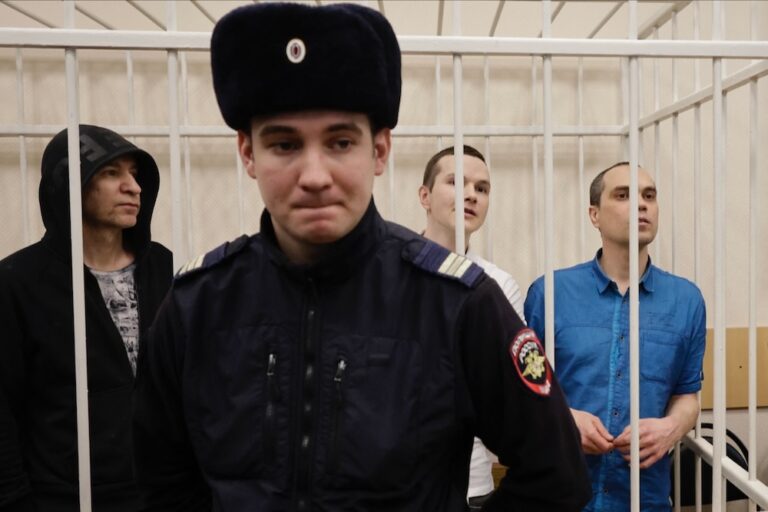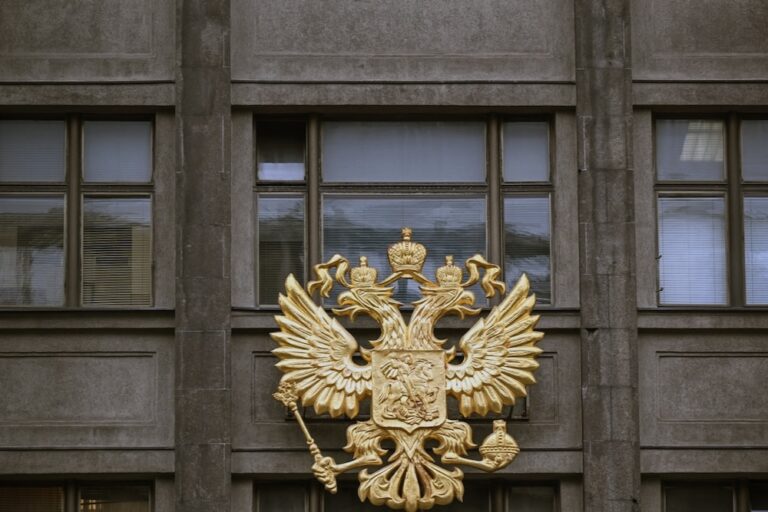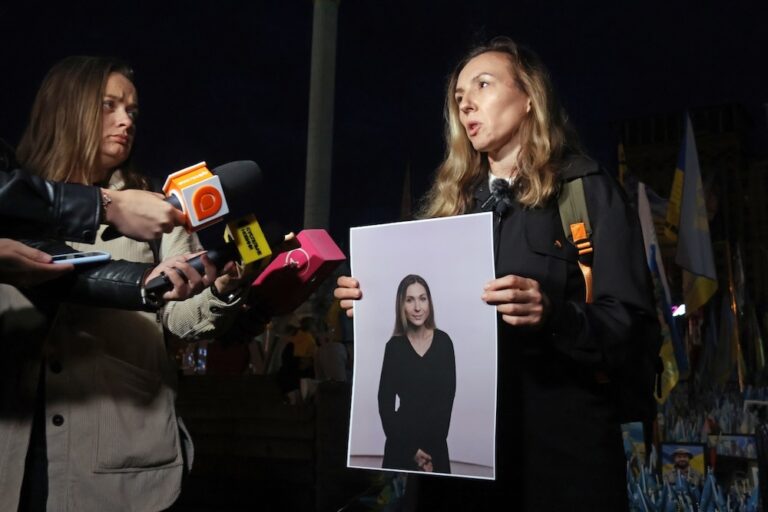GDF credits its letter-writing campaign with influencing public opinion and convincing the judge to drop the charges.
(GDF/IFEX) – 11 February 2010 – The Tverskoy District Court has canceled the decision of a justice of the peace who found RIA Novosti photo correspondent Andrei Stenin guilty of participation in an unauthorized rally and sentenced him to a fine of RUR 500.
As we have reported, A. Stenin was detained by the police on December 12, 2009, while covering a protest action in Moscow’s Staraya Square. Officers at the police station ignored his journalistic ID, his explanations and the fact that he had professional photo equipment on him, and submitted his case to court as that of an alleged protest action participant. The judge’s fine-charging decision was challenged before a higher-standing judicial authority, with the heads of a number of federal media sending Russia’s Interior Minister Rashid Nurgaliyev an open letter urging him to protect fellow journalists and other Russian citizens from police arbitrariness.
As a result, the fine was canceled and the case was closed after it was found that Stenin did not commit an offence. The Tverskoy Court cites new evidence obtained from the police officers who detained the journalist. One of them has recanted his testimony given to the justice of the peace, claiming instead that Stenin “was detained by mistake, as one looking like another man who had taken part in the picketing action.”
“We are satisfied to see the conflict resolved within the legally established framework,” Mikhail Safronov, RIA Novosti deputy general director and head of the news agency’s legal department, commented.
In the view of GDF president Alexei Simonov, the canceling of the fine against Stenin “is not directly related to the administration of justice” and should be attributed to the broad public repercussions the case “unexpectedly” caused. “In 2007, we had about 140 cases of that kind; in 2008, 75; and in 2009, over 60. And it was not until a RIA Novosti photo reporter got implicated that the public had grown mature enough to get the head managers of all the leading media to sign an appeal to the Interior Minister,” A. Simonov said speaking on the Ekho Moskvy radio.
“Too many people signed that appeal for the Tverskoy Court to stand its ground. I do not mean the letter impacted the judicial decision directly – the whole thing just came as a big surprise to everyone who had somehow or other steered that court’s performance.” The way Simonov sees it, the journalist’s acquittal does not mean the press freedom situation in Russia will be improving. “Where convictive sentences of this kind are decisively repulsed, law courts will be returning to civilized methods of conflict settlement; with zero public reaction, they are likely to continue to trample on journalists’ dignity,” A. Simonov summed up.


